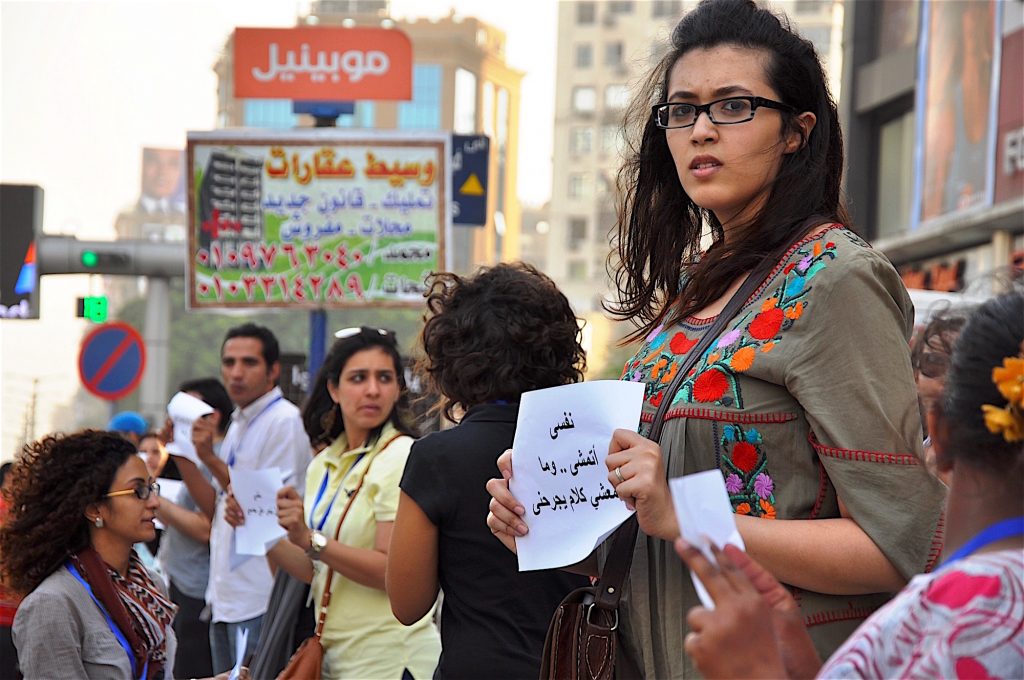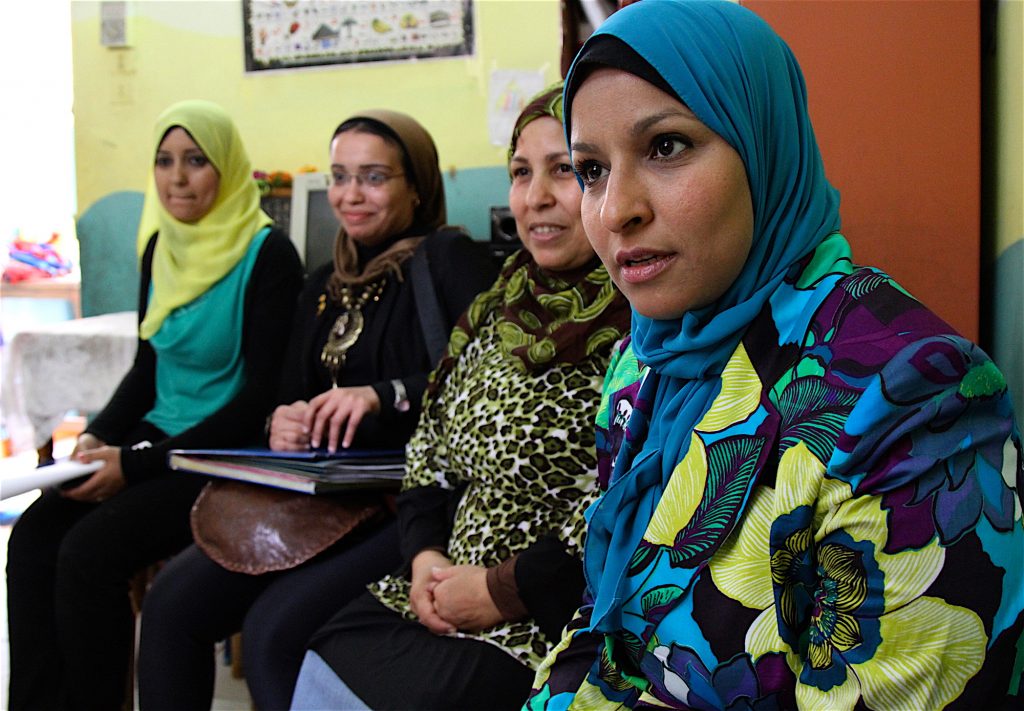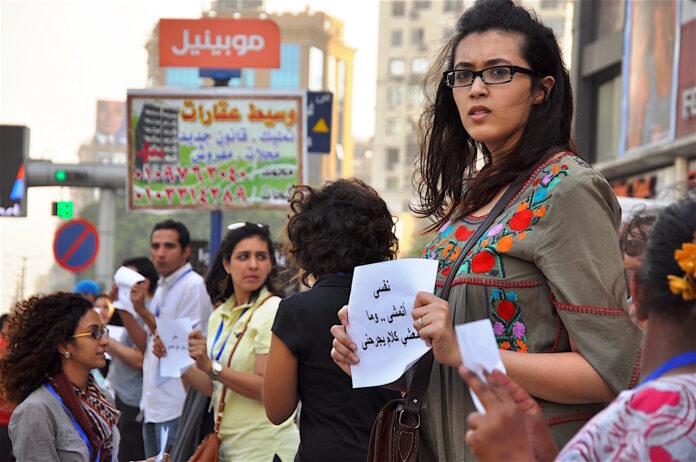Cairo called the world’s most dangerous big city for women
In Egypt, the problem of misogyny is an open secret. Nearly all women report having been sexually harassed – and Egyptians in the West are beginning to say “enough.”
One of the latest controversies involves a televised argument by an Egyptian lawyer, Nabih al-Wahsh, who called harassing and raping women who were wearing ripped jeans a “patriotic duty.” A video clip of al-Wahsh’s comments, made in November 2017 on the Al-Assema satellite channel’s Infrad show in Egypt, went viral, fueling arguments over men’s mistreatment of women.
“I think that is the most disgusting thing any human being could ever say,” said Rutgers University student Alia Ibrahim. “He is a disrespectful person; he’s disrespecting himself by even saying that. And this isn’t the first time he’s disrespected himself.”
Ibrahim was referring to an earlier video clip in which al-Wahsh was shown beating an Australian cleric with a shoe on live TV. The fight broke out after the Australian argued that wearing the hijab was cultural tradition, not a religious duty.
“I think that in Egypt, men only view women as either part of your family, or objects for sex.” — New Jersey resident Mohamed Hasan.
Al-Wahsh was assiduously criticized on social media; the TV channel, Al-Assema, also came under fire. The Egyptian Council for Women planned to file a complaint against Al-Assema. The organization’s leaders called on Egyptian media to stop providing a platform for guests who promote violence against women.
“I agree. I don’t think people should voice these type of opinions,” said Rutgers student Sara el-Hennawy. “This is involving something that’s illegal; it’s not a political opinion. This is something very serious.”
That’s no understatement. And prejudice against women in Egypt only seems to be worsening.
A study in 2008 by the Egyptian Centre for Women’s Rights found that 83 percent of Egyptian women had experienced sexual harassment. In 2013, a United Nations study put that at 99.3 percent.

And in the 2008 study, 53 percent of Egyptian men blamed women for “bringing on” the sexual harassment themselves.
“I think that in Egypt, men only view women as either part of your family, or objects for sex,” said New Jersey resident Mohamed Hasan. “It’s a very misogynistic point of view, and I think the problem lies mostly with the men.”
“In Egypt, guys think that if a women is not completely covered, that she wants the attention of people to harass her and catcall her on the streets,” Ibrahim added. “It’s come to the point that even people who are covered that wear the hijab are also getting harassed.”
A 2017 international poll deemed Cairo the “most dangerous” megacity for women. The poll, conducted by the Thomson-Reuters Foundation, tried to determine how well women are protected from sexual violence in cities with a population of more than 10 million.
“In Egypt — I’ve experienced it too — people always make remarks,” said el-Hennawy. “It’s just something we’ve become immune to, because it’s been happening for so long, and nobody stands up.”

These attitudes are deeply entrenched in Egyptian culture, Hasan added.
“There are traditions that go way back that help promote the violence and discrimination against women.”
“Women have always been afraid of standing up for themselves. It’s just ‘ignore it, ignore it,’ and we’re so used to doing that,” said el-Hennawy. “Maybe if we were to stand up more, people would actually take us more seriously, and not say such remarks.”
Hasan recalled a discouraging high-profile incident in which a victim of sexual assault in a Cairo mall took action: she chased down her harasser, a stranger, and mall security arrested him. But the victim, Somaya Tarek, then a 20-year-old college student, was blamed in Egyptian media commentary for instigating the attack, because she’d been wearing a sleeveless T-shirt. The attacker – who was never named in media reports, but identified only as Hany A. — served a two-year prison sentence. But after he was released, he stalked Tarek, and slashed her across the face, in an incident Tarek called a murder attempt. Tarek ended up warning other women not to report instances of sexual harassment, “lest you suffer a similar fate.”
“I think that’s part of the reason that women are afraid to speak up,” said Ibrahim. “If you look at a terrible, terrible case like this, it only tells women to remain silent and do nothing, otherwise you’ll face terrible consequences.”

